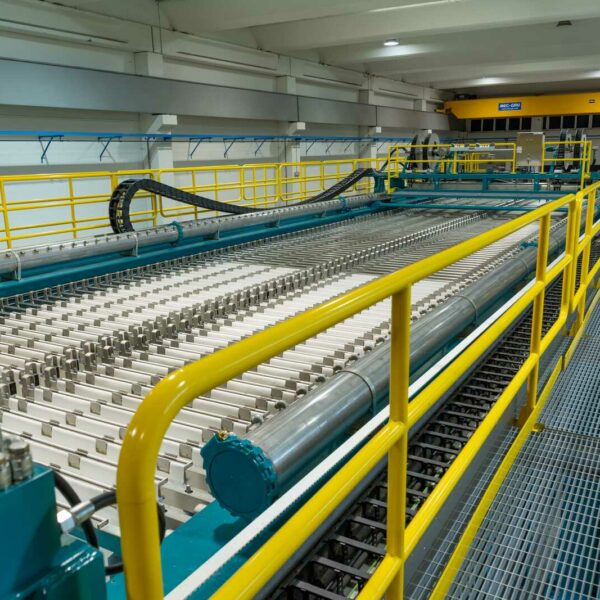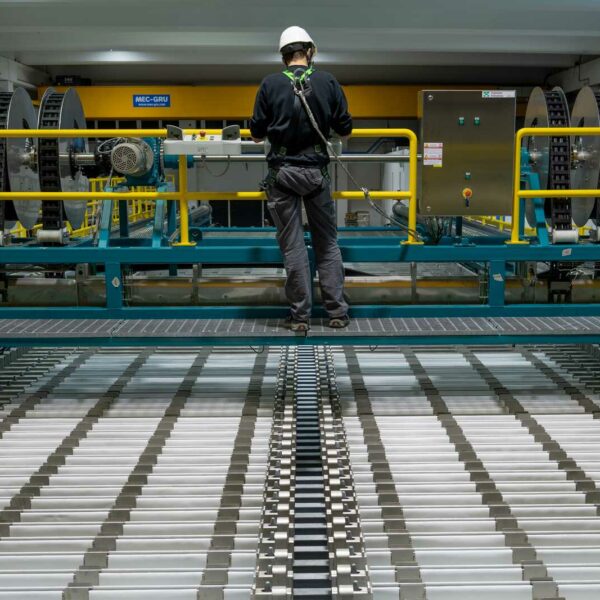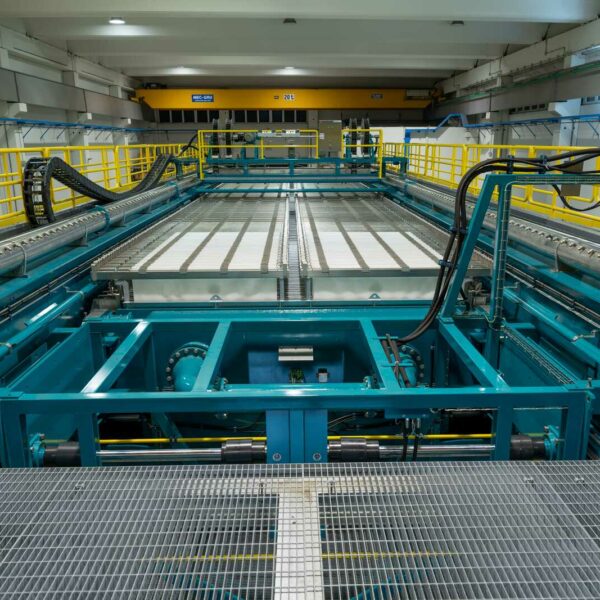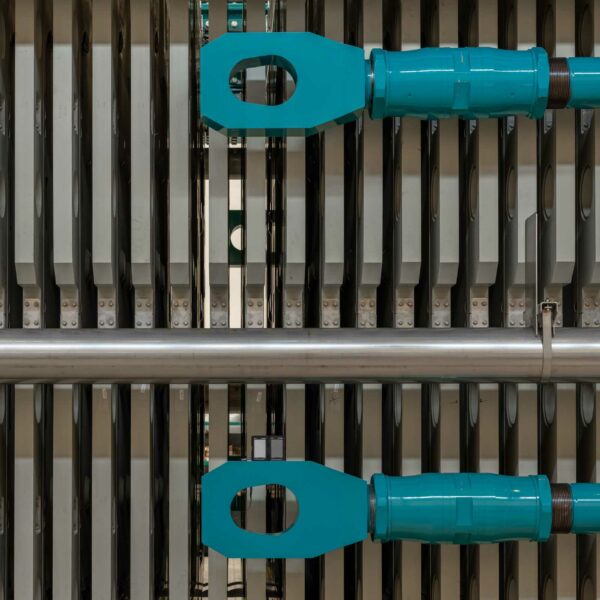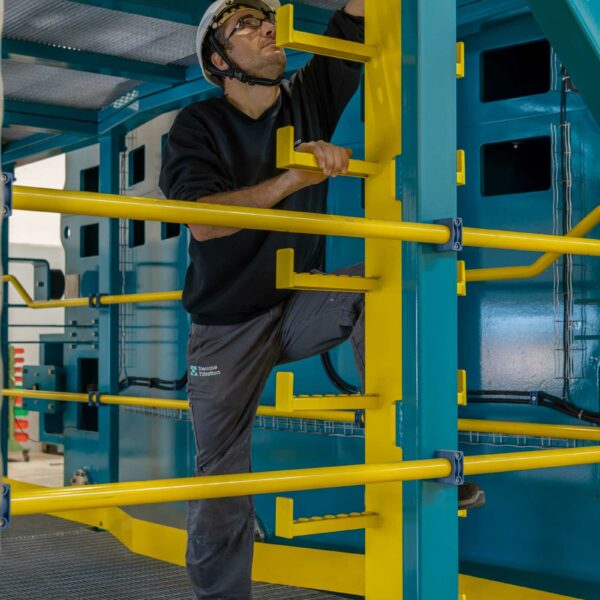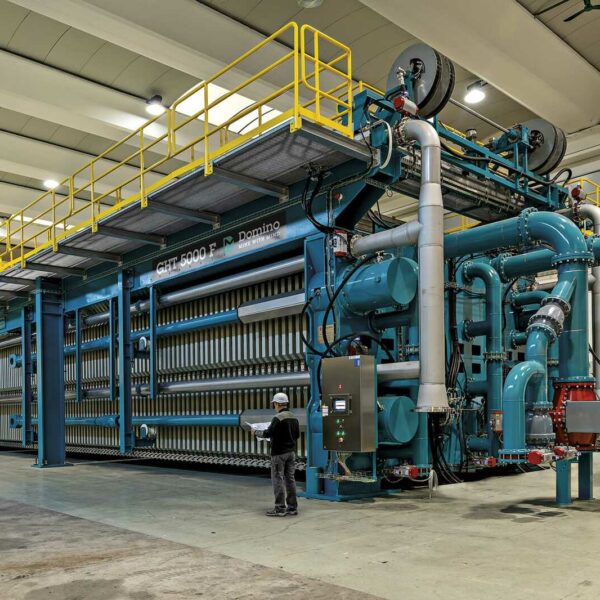GHT5000F Domino
With depleting ore grades, mining companies must extract massive volumes of ore to achieve the same output of metals. The ore beneficiation process produces enormous tailings that require material handling management on a challenging scale. Filtration and dry-stacking of tailings are becoming increasingly popular and the most desirable tailings management technology. The magnitude of these large mines and the corresponding tailings slurry production requires filtration equipment specifically designed to suit this scale.
Key Points
Diemme® Filtration has now designed and built the first of this “next generation” of enormous filter presses, capable of approximately three times the throughput of the largest filter-press currently in operation.
The new GHT5000F Domino filter press has all of the design features of the GHT-F model, in addition to the following included benefits:
- IIoT for control, management and optimization from remote (refer to our AIDA system tutor)
- Integrated work platform for easy maintenance
- Rinsing system with 6 points of washing for a homogeneous rinse of the filter media after each cycle
- Automatic high-pressure cloth washing system with double wash-bar to simultaneously clean the cloths of two chambers and halve the downtime to perform HP cloth washing
- Parts of the frame are factory pre-assembled modules to reduce assembly time at the site
- Quick-Connect cable connections between modules minimize wiring and ensure quick assembly at the site
- Cloth replacement from either side of the filter, with simultaneous multi-cloth replacement capability
Benefits
With a max total filtration volume of 71 m3, and a max total filtration area of 2.850 m2, the GHT5000F Domino is the largest filter-press available in the market. On large throughput projects, the GHT5000F Domino will significantly improve the capital cost of a tailings filtration plant compared with installing many smaller filter presses for the same duty. On a case-by-case basis, it is possible to evaluate the Total Cost of Ownership (TCO) and determine if a reduced number of large filtration trains offers savings versus a system with more units of smaller size.
